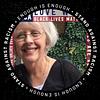You need to sign in or sign up before continuing.
Take a photo of a barcode or cover
This book has some of the best and some of the worst writing I’ve ever read. There’s way too much description, and some combinationsof words do not impress. The book gets a 4 instead of a 5 for that reason. I trust that Cather’s portrayal of Thea as an artist with passion for her work, but no space for compassion in her heart, was intentional. Her entire body, not just her voice, was a machine to be operatored at its highest possible capacity. That’s all. Two men in her life saw her as a goddess, and she seemed to agree. That would be all, except that the time she spent with Spanish Johnny and his Mexican community seemed to show her the greater gift she might have developed had she chosen a different path.
emotional
reflective
slow-paced
Plot or Character Driven:
Character
Strong character development:
No
Loveable characters:
No
Diverse cast of characters:
No
Flaws of characters a main focus:
Yes
Novel from 1915 about a Swedish-American girl growing up in a whistle-stop town in Colorado, then leaving to train as an opera singer in Chicago.
I like the first about half that was set in the little town with Thea growing up and the people that surrounded her, and the early Chicago parts were also interesting. Cather, famously, has a wonderful ability to describe scenery and emotions. There were often great turns of phrase such as "her hatred for [other character] was scarcely approachable in words" (which I'm using as the new flames on the side of my face). I found her character thumbnails good about half the time, and about half the time they didn't work for me.
Also not working for me was the last third or so, where a romance was introduced, and boy did I not care at all. I felt like Cather lost focus on Thea and what made her tick, and the rest of the book was viewed through male characters fawning over her. I didn't like the love interest, and long descriptions of canyons in the South West didn't help. I also have very few feelings about Wagner, and apparently Cather has a lot.
There was also a lot of what gets tagged on AO3 as "Period-typical racism." I think Cather was trying to portray Indigenous and Mexicanx peoples positively? But it wasn't great, and there was a small amount of casual anti-black racism including Thea using the N word.
Overall, I felt like Cather was trying to be George Elliot, and not quite sticking the landing. The narrator was very good. Would listen to Pam Ward again.
I like the first about half that was set in the little town with Thea growing up and the people that surrounded her, and the early Chicago parts were also interesting. Cather, famously, has a wonderful ability to describe scenery and emotions. There were often great turns of phrase such as "her hatred for [other character] was scarcely approachable in words" (which I'm using as the new flames on the side of my face). I found her character thumbnails good about half the time, and about half the time they didn't work for me.
Also not working for me was the last third or so, where a romance was introduced, and boy did I not care at all. I felt like Cather lost focus on Thea and what made her tick, and the rest of the book was viewed through male characters fawning over her. I didn't like the love interest, and long descriptions of canyons in the South West didn't help. I also have very few feelings about Wagner, and apparently Cather has a lot.
There was also a lot of what gets tagged on AO3 as "Period-typical racism." I think Cather was trying to portray Indigenous and Mexicanx peoples positively? But it wasn't great, and there was a small amount of casual anti-black racism including Thea using the N word.
Overall, I felt like Cather was trying to be George Elliot, and not quite sticking the landing. The narrator was very good. Would listen to Pam Ward again.
Though published in 1915, this book still seems so relevant. It tells the story of a young girl growing up in a small town in the west (Wyoming?), with a talent for music, and her eventual success as an opera singer. The settings are well drawn, and one can clearly picture the western town, with its humble buildings but natural beauty, and the more luxuriant surroundings she finds herself in later. There is an amazing interlude in which she takes a kind of artistic retreat to gather her energies while exploring the abandoned canyon dwellings of the southwestern Indians. The primary relationships in the book are between the heroine and her family, and then between the heroine and a series of men who recognize her talent and drive and help her to develop as a singer. In that time, she really had to choose between a conventional life in which she didn't get to develop her talent and an unconventional life in which she did, but had to give up a certain amount of her connection and community to do so. There's still a lot that I recognize in those choices. I loved the unconventional relationships that she had with men - some sexual, but many not, and I wish that more books would show these kind of mentor relationships as important emotionally.
The Song of the Lark is my lone reread for the 2012 Willa Cather Novel Reading Challenge challenge. I decided to "reread" it by listening to an audio book version, narrated by Barbara Caruso.
This book used to be high atop my coming-of-age novel hit list. Sadly, it didn't impress me as much this time. (It can be hard to recapture the thrill of childhood favorites. I recently revisited The Secret Garden and was also somewhat disappointed.) However, I still loved Cather's descriptions of railways, the desert, and early Chicago.
I also felt that the male "love interests" in the book were rather leech-like. Especially Dr. Archie and Fred with their failed marriages and loads of free time to moon about Thea. Meanwhile, Thea changes so radically when she goes from rags to riches. She does seem to embody the worst prima donna stereotypes. Maybe her imperious behavior is meant to illustrate the high price of success?
This book used to be high atop my coming-of-age novel hit list. Sadly, it didn't impress me as much this time. (It can be hard to recapture the thrill of childhood favorites. I recently revisited The Secret Garden and was also somewhat disappointed.) However, I still loved Cather's descriptions of railways, the desert, and early Chicago.
A talented young woman comes of age as an artist, managing to take advantage of the opportunities afforded her by the men who fall in love with her, while avoiding falling into their well-meaning (but potentially stifling) clutches.
Love the way that setting plays such an important role in Cather's novels.
Love the way that setting plays such an important role in Cather's novels.
Though published in 1915, this book still seems so relevant. It tells the story of a young girl growing up in a small town in the west (Wyoming?), with a talent for music, and her eventual success as an opera singer. The settings are well drawn, and one can clearly picture the western town, with its humble buildings but natural beauty, and the more luxuriant surroundings she finds herself in later. There is an amazing interlude in which she takes a kind of artistic retreat to gather her energies while exploring the abandoned canyon dwellings of the southwestern Indians. The primary relationships in the book are between the heroine and her family, and then between the heroine and a series of men who recognize her talent and drive and help her to develop as a singer. In that time, she really had to choose between a conventional life in which she didn't get to develop her talent and an unconventional life in which she did, but had to give up a certain amount of her connection and community to do so. There's still a lot that I recognize in those choices. I loved the unconventional relationships that she had with men - some sexual, but many not, and I wish that more books would show these kind of mentor relationships as important emotionally.
Very well written, but perhaps a bit overly dramatic and dull.
slow-paced
reflective
slow-paced
Strong character development:
No
Loveable characters:
Yes
Diverse cast of characters:
No






